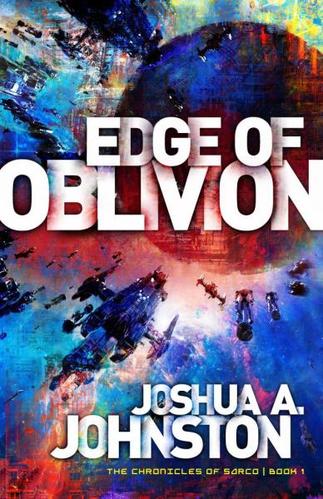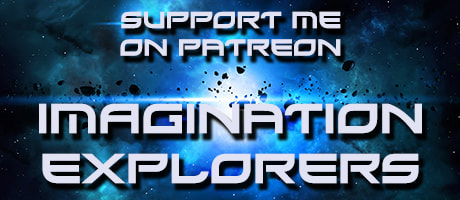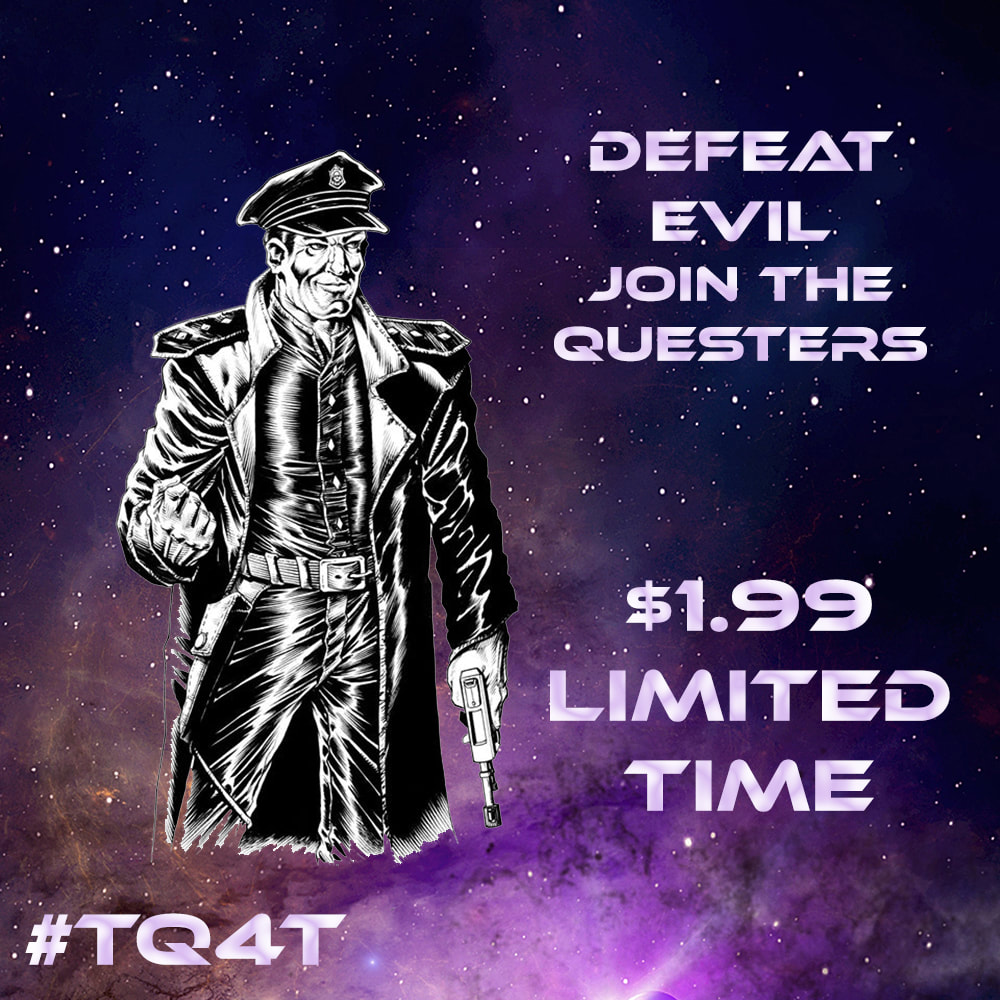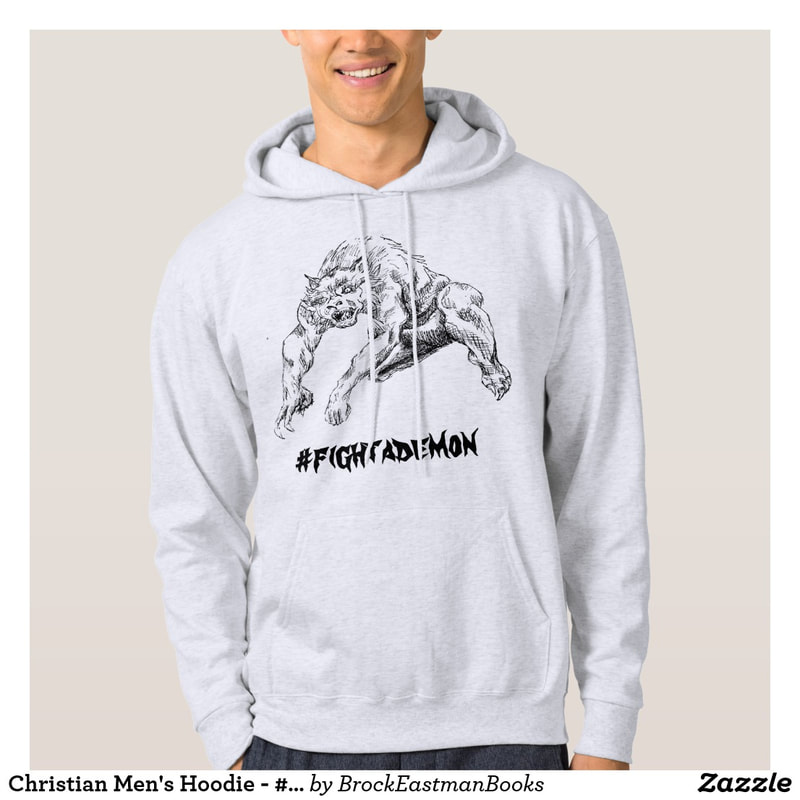 Interview by Brock Eastman Featuring Edge of Oblivion A Forgotten Past. A Terminal Future. Earth has emerged from a cataclysmic dark age with little knowledge of its past. Aided by the discovery of advanced alien technology, humanity ventures into the stars, joining other sentient races in a sprawling, prosperous interstellar Confederacy. That peace is soon shattered. Without warning, the Confederacy comes under attack by an unstoppable alien force from the unknown regions. With hopes for civilization's survival dwindling, Commander Jared Carter is sent to pursue an unlikely lead: a collection of ancient alien religious fragments which may - or may not - hold the key to their salvation ... Brock: What was your inspiration for writing The Chronicles of Sarco? Joshua: I grew up with a real affinity for science fiction, both on television and in the written form, but I also realized that relatively little of what I watched and read dealt with faith in any substantive way. Isaac Asimov, who was not particularly religious, nevertheless lamented about the dearth of science fiction that explored the relationship between God and extraterrestrial life. Part of the reason is that so many science fiction authors were and are humanists, so their worlds marginalize religion as being anti-intellectual or just ignore the subject entirely. At some point I figured, why not try my hand at it myself? Why not see if I could craft a story that incorporated both faith and aliens? That’s where Edge of Oblivion came from. Brock: Tell us about the main characters. Who are they? What makes them unique? Joshua: The primary cast of Edge of Oblivion serves together in a sort of interspecies Navy. Their ship is a small interceptor called the Retaelus, and it specializes in rooting out the pirates that plague the trade lanes between planets. The captain and communications officer are both humans; the weapons officer, sciences officer, and engineer are all non-humans, extraterrestrials from other worlds. Part of the fun of the story is finding out both about the officers themselves and the alien races they come from. On one level, you learn about their cultures and distinct racial traits, but you also learn about the individuals – their pasts and hopes, their accomplishments and failures … and some of their secrets. Brock: Give us one fact about the main character that no one else knows. Joshua: The commander of the Retaelus, Jared Carter, is the epitome of the middle-of-the-pack leader. His career is a succession of respectable but forgettable posts. When it comes to really important assignments, he’s rarely anyone’s first choice, which gnaws on him at times, especially given that his father is a successful Earth politician. But he also is reluctant to engage in the sort of grandstanding and politicking that other officers do to climb the Navy ladder. So it creates a bit of a dilemma for him, and one that he struggles to resolve in his own mind. Brock: In three words, what is Edge of Oblivion about? Joshua: Epic. Space. Adventure. Brock: Do you outline the entire book before starting, or do you write as you go and let the characters take control of the story? Joshua: I outline the entire book before starting, but I’m not automatically rigid about it. There are times I will work out a chapter and then, as the book flows, decide that I’d like to take things in a little different direction. I do like to keep a clear end in mind, though; I almost always know where I want to end up. Sometimes, though, the road to get there may fluctuate a bit. Brock: How do you believe this story relates to the lives of readers? Joshua: Science fiction, I think, is appealing because it takes readers out of their own lives and into someplace different and fantastic. That said, the everyman nature of the crew – and the real problems that they deal with – are elements I think will resonate with readers. Yes, the crew has courage, and yes, they sometimes do courageous things, but they don’t do them because they have some crazy abilities. They do it for the same reasons we sometimes have to rise up in our own lives – because necessity demands it. Brock: What is your favorite genre to write for? Joshua: Definitely the one this falls in, science fiction. I love the idea of being able to create worlds outside of our own and explore them. Exploration is one of the underlying themes of this trilogy, and I hope readers are as excited to visit these new worlds as I was in writing them. Brock: How many books are planned for this series? Joshua: It’s a planned trilogy, which I’m also supplementing that with some prequel and interquel short stories that are and will be available through my author website. Some of the wheels in my head have already started turning with respect to going beyond that, but right now my primary focus is on the chronology of the three books. Brock: How do you strike the right balance in your book between plotlines and character development? Joshua: This is, I think, where beta readers and editors have been invaluable for me. In the plot and character spectrum, I lean more plot, but along the way I’ve had various people say, “Tell me more about this guy” or “Flesh her character out more.” That has been good for me. I mean, I did a lot of prewriting on my characters, but those suggestions really forced me to think more deeply about what makes my characters tick. I hope the end result is a book with good characters and a well-paced plot. Brock: How does it feel to have your work published? Joshua: Absolutely surreal. It’s been a succession of surreal moments. Getting the first request for a full manuscript, the phone call offering me a contract, signing the contract, seeing a book cover with my name on it, seeing an Amazon book listing … every step is something new in my life experience. And as hard as it’s been, it’s also been a real blast, to immerse myself in the way writing and publishing work, and to see how I can succeed there. Brock: Are you working on the next book in The Chronicles of Sarco? Joshua: And then some. Book 2 is in the hands of the publisher and I’m currently hard at work on Book 3. Brock: Are you a full-time or part-time author/writer? Joshua: Part-time. My day job is teaching high school history and government. There is a part of me that wouldn’t mind being able to write full-time, but I also think my day job is good for me; it gets me on my feet, away from my computer, and into life experiences that for me, personally, have been good for my creative process. Brock: What are some of the strongest influences on your writing? Joshua: Lots of names come to mind. Edgar Rice Burroughs did some amazing world building with the John Carter novels. Isaac Asimov’s books were grand and epic, and Robert Heinlein’s books were just really solid adventures, especially his earlier works. And as much as I talked earlier about science fiction being a humanist domain, Orson Scott Card and Frank Herbert have done some interesting things in exploring how faith fits in with science fiction. Brock: What’s your view on e-books and the new publishing revolution? Joshua: The history guy in me knows that every advancement comes with tradeoff. On one hand, I hear stories from established traditional authors about how things like book tours and publisher marketing campaigns are not what they used to be. Yet I’ve also read stories about how eBooks and the Internet have really democratized the process and allowed for more authors to carve out a space. I would like to believe that interest in books has grown, not shrunk, with the advent of eBooks, and in a world where so many things compete for our time and attention, that’s cool. Brock: What was your favorite book as a teen or child? Joshua: Really hard choice, so I’m going to cheat and name four … well, one series and one book, anyway. The series is Asimov’s Foundation books, which are both profoundly deep and broad, grappling with all kinds of issues across this astonishing timeline. The book is Robert Heinlein’s Tunnel in the Sky, which chronicles a young man stranded on an alien world with a group of other students. It’s a great survival-against-all-odds tale. Brock: What are your hopes for your future as an author? Joshua: You know, I’m not sure. I know I enjoy writing and I’m thrilled that I have the opportunity to showcase that work through a publisher, but I’m also trying to live in the moment and just enjoy the journey as it comes. My wife and I have talked some about where I would like to go with writing down the road, but at this point I’m simply taking things one day at a time. Brock: Coke or Pepsi? Joshua: Give me a Coca-Cola Classic and I’m in heaven. Brock: Favorite place to vacation? Joshua: My wife and I have a large 18x10 foot tent that we put to use each summer at various state parks in our region. I love pitching a tent on a warm (but not hot) summer day, cooking burgers over an open flame and hiking across quiet trails with my wife and daughters. Those memories are priceless. Brock: Do you listen to music while you write? If so, what are some examples? Joshua: I love epic ambient orchestral soundtrack music. Give me an Audiomachine marathon and I’m pretty much set. Brock: Have you done any other writing besides fiction? Joshua: Over the years I’ve done a fair bit of writing on other subjects. I’m a former senior editor and now contributor to Nintendojo, a fansite devoted to games for Nintendo consoles and handhelds. I once even got invited to demo Guitar Hero out in California, but I painfully had to turn it down because of the demands of my day job. I also chip in with some articles on parenting for a website called Mumbling Mommy, which my wife works for as an editor. Brock: What are your favorite nonfiction titles? Joshua: My degree is in history, so I’ve read a fair bit on that subject over the years. I enjoy reading up on American presidents, especially as historians re-evaluate their presidencies over time. I also love a good nonfiction adventure tale: one of my favorites is Alfred Lansing’s Endurance, an incredible and very true story of Ernest Shackleton, who led a crew though a series of harrowing ordeals in the Antarctic during the 1910s.  Author Website: JoshuaAJohnston.com Author Facebook: facebook.com/joshuaajohnston Author Twitter: @jallenjohnston Author Goodreads: goodreads.com/joshuaajohnston
0 Comments
Leave a Reply. |
Follow meArchives
May 2024
Categories
All
|






 RSS Feed
RSS Feed